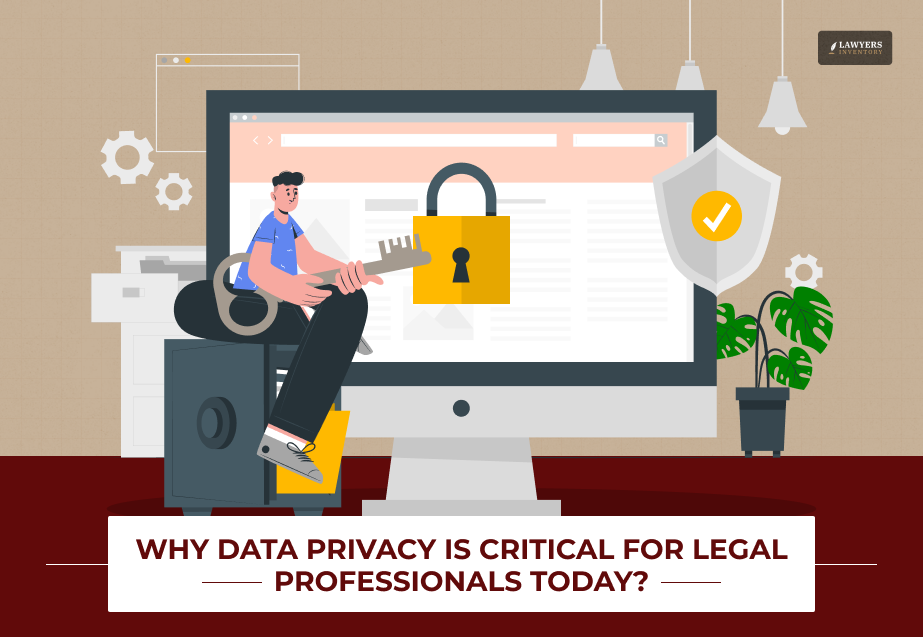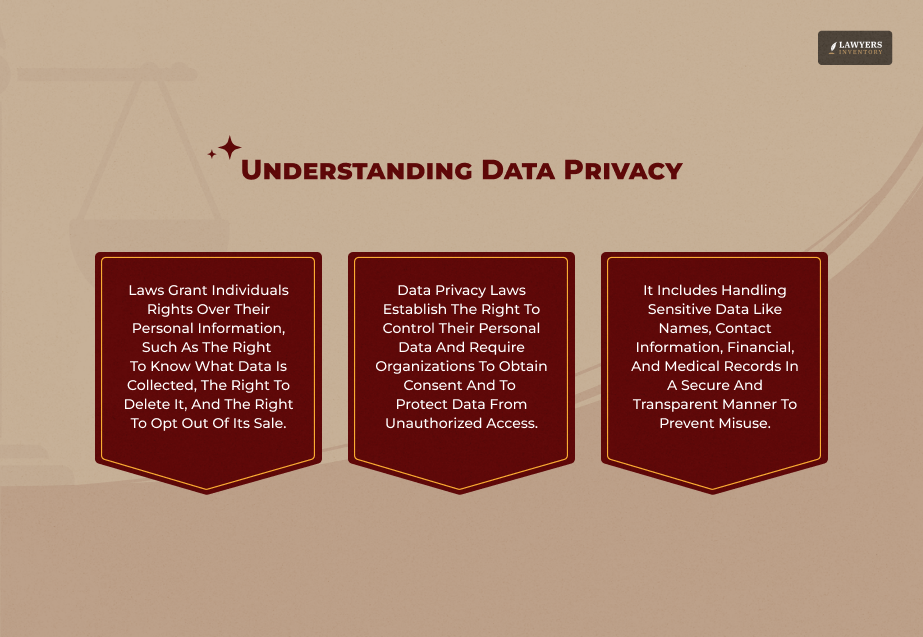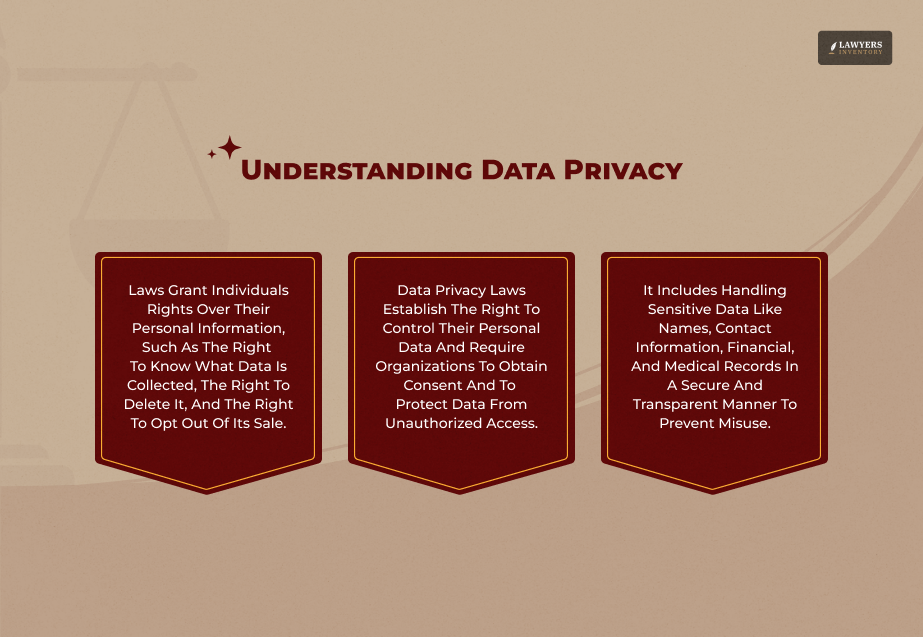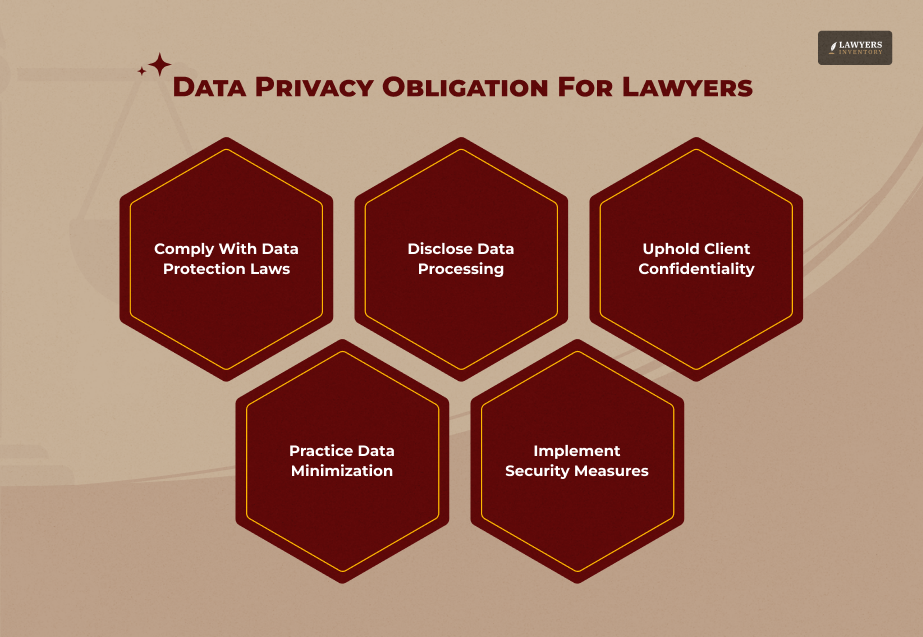
- Many firms lack preparation when it comes to data privacy, with only 34% having an incident response plan.
- In 2024, 42% of data breaches were identified internally, while third parties discovered 34%.
- Some analyses suggest dozens of law firms report breaches each year — 21 firms in the first half of 2024 alone.
Times have changed, and currently, we are living in an era where data is the lifeblood of business. And at a time like this, few professions handle as much sensitive and potentially damaging information as lawyers.
From privileged communications to case files, financial documents, medical records, and strategy memos, legal professionals serve as guardians of client secrets. Yet with rising cyber threats, the obligation to protect that data is no longer optional — it is central to professional ethics, legal compliance, and client trust.
However, recently, legal professionals have started taking steps to ensure data privacy in law enforcement. From following ZTNA basics for better data protection to adapting themselves to more secured softwares, law firms have been really trying to up their game.
In this article, I will explain the following things:
- The meaning of data privacy in law enforcement.
- The importance of data privacy for legal professionals.
- Legal and ethical obligation for lawyers.
- Best practices that legal professionals must follow.
- The future of data privacy in law enforcement.
Additionally, I will also answer some of the questions that most people also ask when it comes to protecting data in law enforcement. Therefore, if these are some of the things that you want to know, keep on reading this blog till the end…
What Is Data Privacy In The Legal Context?

Data privacy, in the context of law practice, encompasses more than standard cybersecurity. It means ensuring that clients’ confidential information is kept private, used only for authorized purposes, and disclosed only with consent or under valid legal duties. For lawyers, this includes:
- The professional responsibility to maintain confidences (e.g., ABA Model Rule 1.6 in the U.S.).
- Adherence to statutory privacy and data protection regulations (e.g., GDPR for EU customers, CCPA for California or foreign/local data protection laws).
- Technical controls consist of encryption, access control, secure backups, perimeter security and incident response.
- Organizational controls — including policies, staff training, oversight of vendors and audits.
In practice, data privacy for lawyers means every email, document, cloud storage, mobile device, and third-party provider must be managed with care. Lawyers, paralegals, and support staff share responsibility — not just the IT department.
Why Data Privacy Matters More Than Ever?

There is a reason why the importance of data privacy in law enforcement has increased over the years.
1. Cyberattacks Increasingly Target Law Firms
Law firms are particularly attractive targets for cyber adversaries because they hold valuable, sensitive information. For example, in 2023, the ABA’s Cybersecurity TechReport noted that law firms experienced a breach 29% of the time.
When a data breach occurs, the collateral fallout comes from all directions: client information exposed, reputation damaged, regulatory fines, malpractice lawsuits, and even time when operations cease.
2. Legal & Financial Liability
A breach involving client data can open attorneys and firms to:
- Malpractice claims or negligence suits.
- Breach-of-contract claims (if client engagement letters promise confidentiality).
- Regulatory fines under applicable data protection laws.
- Class-action litigation, according to WilmerHale, is proliferating alongside data breach litigation in 2024.
- Loss of clients and revenue due to reputational harm.
3. Ethical And Professional Duty
For lawyers, data privacy is not just good business — it’s an ethical imperative. Under ABA’s Model Rule 1.6, lawyers must not reveal client confidence. The ABA’s Formal Opinion 483 (2018) addresses how lawyers should respond to electronic data breaches or cyberattacks. That opinion:
- Emphasizes proactive measures (competence, risk assessments).
- Requires communication and reasonable steps once a breach occurs.
- Imposes supervisory obligations on law firms to oversee nonlawyer staff and vendors.
- Ties into other rules such as Rule 1.1 (competence), 1.4 (communication), 5.1 / 5.3 (supervision).
Note: Failure to heed that ethical duty can lead to disciplinary proceedings or professional liability.
More recently, the New York City Bar Association issued Formal Opinion 2024-3 addressing cybersecurity incidents and extortion demands. It confirms that lawyers must promptly notify clients under Rule 1.4 in certain “material development” cases, even if paying ransom is permissible in certain circumstances.
Moreover, lawyers must conduct a reasonable inquiry to assess how extensive a breach is and whether client interests are affected.
4. Client Expectations & Market Pressure
Clients now expect lawyers to be upfront about how their information is used or shared with a third party, as well as whether the information will be secure. Clients will be even more demanding—especially corporations—to ensure that the engagement letter assures them about cybersecurity and data protection.
Smaller clients may even choose a lawyer based on what they hear about the lawyer’s data protection posture. If a law firm makes a habit of disregarding privacy, it could easily find its business diverted to competitors that are cognizant of cyber risk.
5. Remote Work, Cloud Tools, And AI Complicate Risk
Remote work, mobile devices, cloud-based legal software, and AI tools all extend the attack surface. Unsecured Wi-Fi, unmanaged devices, or unsecured third-party integrations could easily lead to leakage of protected data.
The tech that law practices see and desire with increasingly in-depth tooling also requires increasingly robust management and security capabilities.
What Are The Key Legal & Ethical Obligations For Lawyers?

Here are some of the legal and ethical obligations that lawyers have when it comes to data privacy:
Ethical Duty Of Confidentiality & Competence
- Lawyers must exercise competence in technology and cybersecurity (Rule 1.1)
- They must protect client confidences (Rule 1.6)
- Supervisory duties (Rules 5.1, 5.3) require oversight of staff and vendors
Formal Opinion 483 links these obligations to real-world threats: law firms must anticipate breaches, assess vendor risk, and maintain robust policies.
Statutory & Regulatory Data Privacy Laws
There are multiple relevant considerations based on where lawyers practice and who their clients are.
- GDPR (If you have clients from the EU or EEA, or if you handle personal data while providing services within the EU).
- CCPA (If you have clients from California).
- Data protection laws (e.g., India’s Data Protection Bill, multiple state privacy laws).
- Sector-specific laws (e.g., HIPAA if you handle matters related to healthcare).
- Breach notification laws (some statutes and regulations require notification of authorities or those affected).
Lawyers must also work through rules that may overlap; although a particular law does not require reporting of a breach, they may have an ethical rule to disclose a breach to a client.
Duty To Notify Clients After A Breach
If a breach materially compromises the representation, under Model Rule 1.4 (communication), lawyers are required to inform clients.
Formal Opinion 483 and the comment to the Rule make it clear that the circumstances will result in an obligation to communicate quickly in many instances, and lawyers have an obligation to disclose material facts and to keep their clients reasonably informed about the matter.
Nevertheless, the timing and breadth of any notification will depend on a number of variables, including the facts, jurisdiction, and whether client data was materially compromised.
Formal Opinion 2024-3 also makes it clear that paying ransom is not unethical in itself. Still, if a breach is reported to law enforcement or a government entity, any disclosures must be made consistent with the applicable rules regarding confidentiality.
Best Practices For Legal Professionals To Protect Data
Here’s a practical checklist legal professionals and firms should adopt to enhance data privacy:
- Perform regular risk assessments and audits.
- Adopt encryption and strong authentication.
- Implement the principle of least privilege.
- Choose vetted technology and vendors.
- Train staff and enforce policies.
- Maintain a formal incident response plan.
- Schedule periodic policy review and updates.
- Cyber insurance as a mitigation.
- Backup strategy and disaster recovery.
- Monitor and respond to anomalous behavior.
These practices don’t guarantee immunity, but they meaningfully reduce risk and signal to clients and regulators that the firm takes data privacy seriously.
The Future Of Data Privacy In Legal Practice
Safeguarding client information now goes beyond being a best practice; it is an essential aspect of the client’s role as a legal professional.
Data breaches put client interests at risk and expose a law firm to reputational harm, possible regulatory penalties, and liability within the professional framework.
So, what is the emerging future of data privacy in law enforcement?
Artificial Intelligence, Automation, And Privacy-By-Design
The utilization of a variety of artificial intelligence tools for document review, contract analysis, and legal research is becoming increasingly common amongst lawyers.
The fact that these systems may ingest and hold sensitive client data should make the organization stop to consider privacy-by-design principles, like anonymizing the data when possible, and assessing the privacy practices of your AI vendors.
Changing Legislation And Transfer Of Data Across Borders
As privacy concerns and awareness begin to rise around the globe, more and more jurisdictions have recently begun enacting regulations that are either or are substantially similar in scope and effect to the GDPR or the California Consumer Privacy Act.
Hence, if you are a lawyer working across borders on cross-border issues you will be facing concerns about where the data is held, how it can be transferred (custodial transfer), and compliance with applicable data privacy laws.
Controllability And Expectation Of Clients
Increasingly, clients will want their data to be safer and will demand a certain level of control over their data. They will also want firms’ procedures to be more transparent.
Firms may have contractual obligations to disclose security audits, security breaches, security procedures to address breaches, and data retention policies. Having an appropriate privacy policy in place will also become a necessity.
Specialized Roles At Law Firms
As law firms become larger in size, many will create a Chief Information Security Officer (CISO) or Chief Data Protection Officer position to deal exclusively with these issues.
More firms will also establish a cybersecurity task force, while some of the large firms will elevate cyber risk and security to a boardroom conversation.











0 Reply
No comments yet.